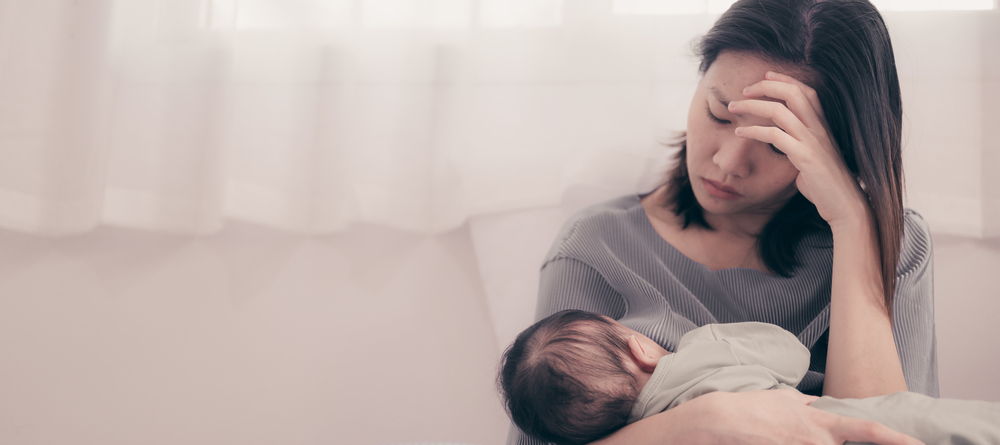Whether it is your first or third child, having a new baby can trigger a mix of powerful emotions — excitement, joy, fear, and anxiety. And these big emotions are usually caused by physical changes including changes in hormones, interrupted and lack of sleep, and a change in diet and physical activity. Most new moms experience postpartum "baby blues" after giving birth. Baby blues usually starts within the first two to three days after delivery and may stay for up to two weeks.
However, some new moms experience a more serious, long-lasting form of depression called postpartum depression. It may be mistaken for baby blues at first, however, the signs and symptoms of postpartum depression are more intense and last longer it will eventually disrupt the ability to care for the baby and manage daily tasks.
Postpartum depression signs and symptoms
- depressed mood or severe mood swings
- excessive crying
- difficulty in bonding with baby
- withdrawing from family & friends
- appetite loss or over-eating
- inability to sleep (insomnia) or sleeping too much
- overwhelming fatigue or loss of energy
- lost interest and pleasure in the things you used to like
- intense irritability and anger
- fear that you are not a good mom
- hopelessness
- restlessness
- feelings of inadequacy, worthlessness, shame, or guilt
- reduce the ability to think clearly, focus, or make decisions
- severe anxiety and panic attacks
- thought of harming yourself or your baby
- recurrent suicidal or death thoughts
At any point you have thoughts about harming yourself or your baby, immediately seek help from your spouse or loved ones in taking care of your newborn. Call 999 or your local emergency assistance number to get help. Consider seeking help from healthcare or mental health providers.
Ways to cope with postpartum depression
It is fine to feel overwhelmed. Being a parent is not always sunshine and rainbows, sometimes it rains and it is okay. Having a baby is not easy. If you have depression, you don't have to go through it alone. Your doctor can help find a treatment that fits you.
Here are some of the things you can do to cope with postpartum depression
- find someone you can talk to — a friend, therapist, family member or someone who will listen and help you
- join a support group for new parents
- try to eat healthily and find time to exercise
- prioritize rest for yourself
- spend time with friends or call them on the phone
- find time for me-time and doing things you enjoy like reading or going to the spa
- get help with household chores and errands
Postpartum depression prevention
Postpartum depression is not completely preventable. It helps to know the warning signs and symptoms. Here are some tips you can consider taking to help prevent postpartum depression.
- be realistic with the expectations for yourself and your baby
- limit visitors when you first go home
- ask for help by letting others know how they can help you
- sleep or rest when you can
- exercise by taking a walk and get out of the house for a break
- don't isolate yourself — call/text your family and friends
- take care of your relationship with your partner by making time for each other
- expect some good days and some bad days
















